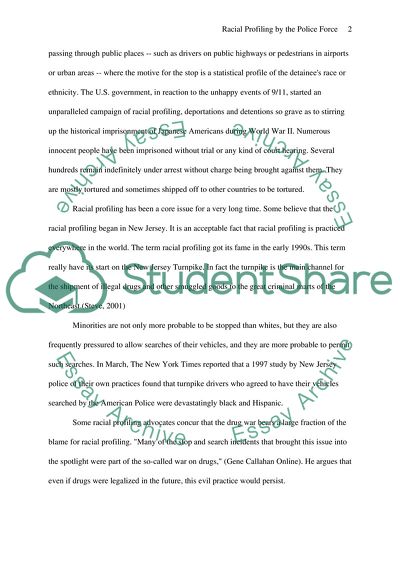Cite this document
(“Racial Profiling by the Police Force Essay Example | Topics and Well Written Essays - 2250 words”, n.d.)
Retrieved from https://studentshare.org/sociology/1512862-racial-profiling-by-the-police-force
Retrieved from https://studentshare.org/sociology/1512862-racial-profiling-by-the-police-force
(Racial Profiling by the Police Force Essay Example | Topics and Well Written Essays - 2250 Words)
https://studentshare.org/sociology/1512862-racial-profiling-by-the-police-force.
https://studentshare.org/sociology/1512862-racial-profiling-by-the-police-force.
“Racial Profiling by the Police Force Essay Example | Topics and Well Written Essays - 2250 Words”, n.d. https://studentshare.org/sociology/1512862-racial-profiling-by-the-police-force.


